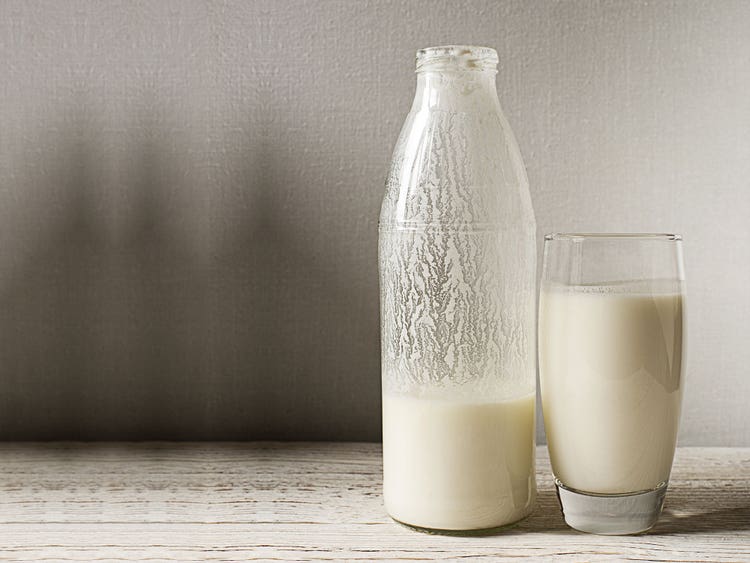Fermented Food: What’s the Fuss?

It’s long been a staple in supermarkets, but that doesn’t mean that you’ve tried kombucha tea (or know what’s in it). It’s part of the massive trend towards fermented foods, as more studies show that our gut bacteria are critical to our overall health. If the only fermented foods you’re familiar with are sauerkraut and beer, it helps to understand what fermentation is and what it does (and why beer doesn’t deliver the same benefits).
WHAT IS FERMENTATION?
Fermentation is a metabolic process where micro-organisms such as bacteria, yeast and fungi feed on the sugars in food to create lactic acid — a natural preservative that retains nutrients and prevents spoilage. Beer and wine are classic examples of fermented foods where yeast converts sugars to alcohol. Other types of fermented foods use bacteria, such as Lactobacillus which is used to make yogurt.
WHAT DOES FERMENTATION DO?
Besides food preservation, some bacteria can increase levels of vitamins in food, particularly B vitamins, and can make food more digestible. The lactic acid by-product can also produce various strains of probiotics that encourage the growth of beneficial bacteria in our guts which help to prevent harmful bacteria from damaging our health. This improves the balance of our body’s collective microbiome — our body’s bacterial ecosystem.
GOOD GUT = GOOD HEALTH
Most of us are aware that the beneficial bacteria in our gut play an important role in digestion, but research is now discovering that the gut microbiome, which is unique for everyone, also influences our health and can increase or decrease our risk of disease. Although microbiome research is still in its early stages, studies to date show that a healthier gut microbiome is linked to improved immunity, a decreased risk of developing skin disorders, diabetes, asthma and some cancers and, according to some preliminary studies, may even help us get leaner. When bad bacteria get the better of our bodies, it is thought to contribute to conditions like irritable bowel syndrome, asthma, some food allergies, inflammation and even depression and anxiety.
PROBIOTIC POWER
The old adage that “you are what you eat” is especially true when it comes to our gut microbiome. The composition and function of gut bacteria can be altered by feeding it with foods containing naturally-occurring healthy bacteria (probiotics), such as those found in fermented foods. Here are some probiotic-rich fermented foods to try:
- Kombucha is a fermented tea created by adding a culture of bacteria and yeast to a solution of tea, sugar and sometimes other flavorings. The bacteria and yeast consume the sugar, producing a fizzy, tangy drink high in probiotics. Although there is currently little evidence to support any kind of claims about kombucha tea such as increasing liver health and cancer prevention, the high probiotic content may help boost digestion.
- Yogurt is produced through the fermentation of milk by lactic acid bacteria. The are many different types of bacteria added to yogurt, which produce probiotic cultures that have been shown to improve lactose digestion, gastrointestinal function and stimulate the immune system.
- Kefir is a drinkable yogurt that boasts even more probiotics than yogurt! Kefir is a bit of an acquired taste, but both yogurt and kefir are good sources of protein, calcium and vitamin D.
- Miso is a Japanese paste made by fermenting soybeans. It’s used to make miso soup and can also be used to add flavor to Asian broths and noodle dishes. A little goes a long way, as some varieties can be extremely high in salt.
- Tempeh is a cultured soybean cake, made with whole soy beans. Because it contains all the essential amino acids, it’s a complete source of vegetarian protein.
- Fermented vegetables like sauerkraut are packed with probiotics. Sauerkraut is made from raw, finely shredded cabbage that is packed tightly with salt into a large vacuum-sealed jar and left to ferment. Kimchi, sauerkraut’s Korean cousin, is fermented cabbage with additional seasonings and spices.
DIY FERMENTATION
In theory you can ferment anything. And a good place to start is with vegetables. Try this homemade sauerkraut recipe.
Ingredients
- 1 medium cabbage
- 1 tbsp sea salt
- 1 tbsp caraway seeds
Method
Wash the cabbage and remove the outer leaves. Shred the cabbage finely. Mix all ingredients in a large bowl with clean hands to release juices (approx. 10 minutes). Pack the cabbage mixture tightly into a sterilized jar until the juices cover the cabbage. Store at room temperature in a dark spot for at least a week before transferring to the fridge.